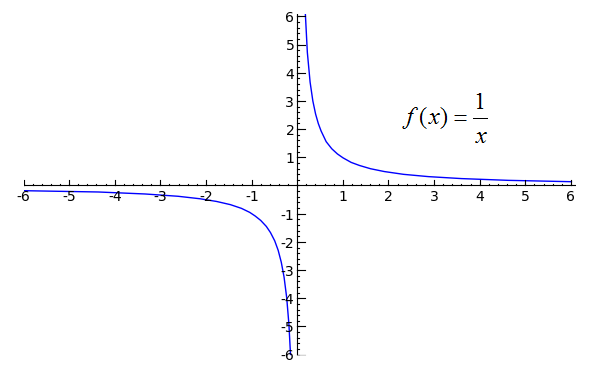Limit
The limit means, what number do you approach as you keep repeating the function?
Limits are useful in calculus because you can think of them as upper and lower boundaries on the shape of the graph. If you know a function's limit is 2 then you know that when x is huge the graph will look pretty much like a horizontal line at y=2.
Any time you see something like an ellipsis you should be thinking that there is something going on involving limits
- ex.
f(x) = 1/x is the classic example to illustrate limits.

Here, x cannot be 0, because it would result in an undefined value for f(x). Instead, x can only become arbitrarily small (meaning we can continue to get smaller and smaller, but never 0). From the other side, we can make x an arbitrarily large number (meaning we can continue to get bigger, but never infinite).
- So the graph would start
f(x)at almost infinity and end at almost 0, but never becoming 0, being a giant L shape
Driving analogy
Say you're travelling 100 km. And you decide to travel half the distance every day:
- The first day you cover half of the 100 km, which is 50 km.
- The second day you only have 50 km to go, so you cover half of the 50 km, which is 25 km. You now have covered 75 km in total.
- The third day you have 25 km left, so you travel half of that, which is 12.5 km. Now you have travelled a total of 87.5 km.
If you continue doing this, you will never cover the whole distance as you will always have half of the distance remaining. The limit here is 100km as that is the distance you're trying to reach, but never will.
- so a
limit, in the simplest sense, is just something you can get arbitrarily close to
While there's no "solution" to these problems, sometimes we want to talk about them. Limits let us do this by saying "OK, so you can't solve for that value but if you could, it'd be this".